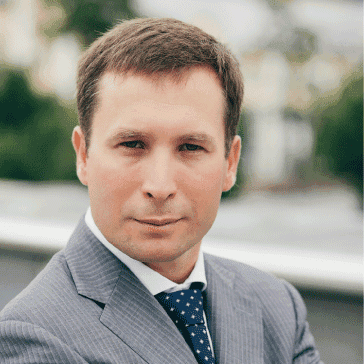Visitors to the website of Russian boutique firm, Ost Legal, will find, under the “Team” heading, the following message: “We don’t employ junior associates and paralegals and we do not teach our lawyers at the client’s expense.” Intrigued by this approach, we reached out to the firm’s Managing Partner, Vladimir Lipavsky who was kind enough to offer insight into the reasons behind the choice to build a team different to the usual associate-based pyramid structure of law firms and the implications of this approach.

Vladimir Lipavsky, Managing Partner, Ost Legal
CEELM: Your website has a clear-cut statement that you only have senior lawyers in your team. What was the thought process behind choosing this strategy in building your team?
V.L.: We are a niche law firm, which focuses in several sophisticated areas: energy and natural resources, construction, litigation and arbitration (related to our expertise). Such a business model requires, apart from substantial purely legal experience, also considerable expertise in the industry. Only practical experience can give that.
CEELM: Without junior lawyers or paralegals in your team, who manages work traditionally handled by junior members of a law firm?
V.L.: We don’t have much of such work – we don’t have a lot of filings, M&A work, etc. – which usually requires engagement of juniors. We primarily draft EPC, EPC(M) and other construction contracts, equipment supply contracts, and we negotiate such contracts for the client – that’s the type of work which can only be done by a senior or partner.
CEELM: Does this strategy then imply that you only grow your team through lateral hires?
V.L.: Yes, we employ only people with substantial experience – they either come from other law firms (for example, one of our counsels came from Clifford Chance) or from In-house – primarily from construction companies.
CEELM: What are the criteria based on which you select who you hire? What do you look for primarily: knowledge, practical/deal experience, or personality/attitudes for team cohesion?
V.L.: We select our people very carefully. All the factors mentioned matter. Both purely legal and industry expertise are important. Besides we pay much attention to personal aptitudes such as communication skills, possessing a commercial mind, ability to carry out negotiations, etc.
CEELM: One of the traditional justifications for growing organically is the ability to train lawyers in your culture, your standards, your methods. Many lateral hires don’t work out, traditionally, because at the end of the day lawyers who were trained in different law firms have different ways of working, which can result in an unwelcome clash of expectations and inconsistent service. Is this a problem for you, then? Why not?
V.L.: I didn’t say we don’t train the lawyer. We do and we do a lot. Our work differs from the work of most law firms and we always motivate our lawyers to share our methods, approaches and culture. I just meant that people who join us – at that moment they usually already have years of experience. Which doesn’t mean that we do not train them afterwards.
CEELM: The argument that you announce on your site is that you do not wish to train juniors at the expense of clients. However, does this strategy not also mean that clients are also charged senior rates for work that would normally be charged at junior associate rates?
V.L.: We don’t have a lot of work that could be done by juniors. See above.
CEELM: What has been the client’s feedback to this strategy to date and how, if at all, will you change it in the upcoming future?
V.L.: To our knowledge the clients like our expertise. Our concentration on few selected areas allows us to successfully compete with some giant international law firms.

